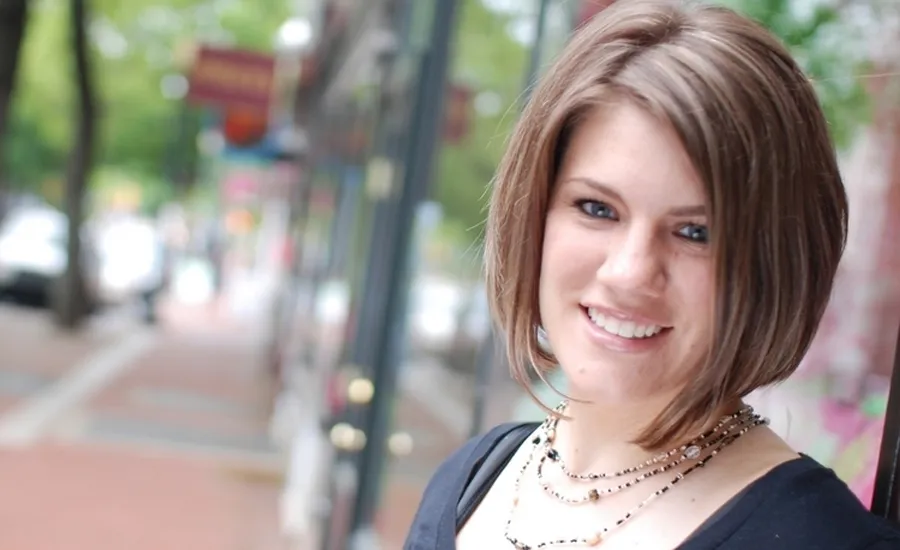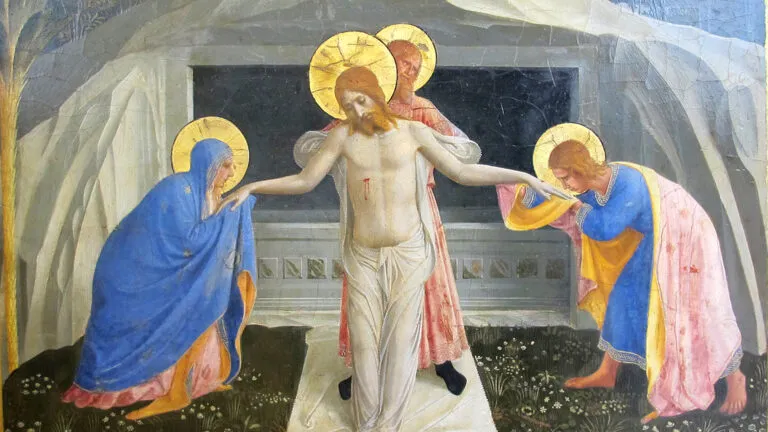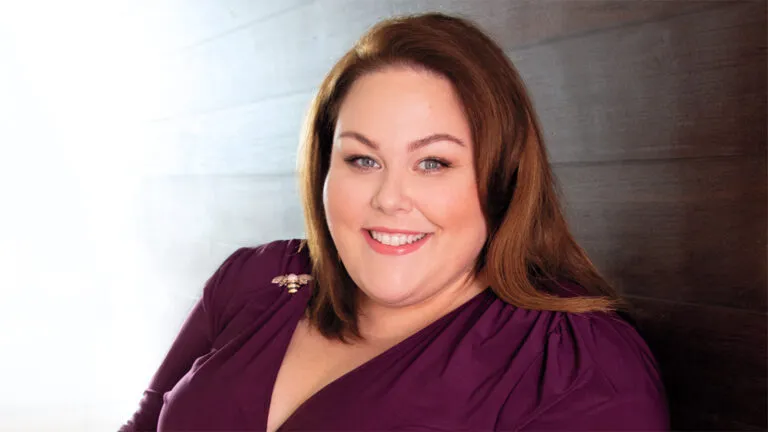New York Times best-selling author Rachel Held Evans knows a thing or two about millennials leaving the Church. A decade ago, the Christian blogger was one of them.
Born to a deeply evangelical Christian family in Dayton, Tennessee, the buckle of the Bible Belt, Evans had professed her belief in Christ at age 13 and quickly became known in her community for being what church folks call, “on fire for God.” Facilitating the conversions to Christianity of her atheist high school classmates, Evans was confident in who Christ was, who God was, and who she was because of Them.
Then, she went to college.
Try These Self-Help Books to Reach Your God-Given Purpose
As an English major at Bryan College, Evans started asking questions about things she didn’t understand in the Bible or in doctrine. Her questions were often met with concern for her salvation, with deflection, with insults about her lack of faith—but no answers. The message Evans received was that there was no room for doubt or even questions in the Church. So, eventually, she excused herself and quietly slipped out of the backdoor of church life.
During this time, Evans became a well-known blogger who often wrote about her struggles with faith. She’s now written 3 books, the latest of which is Searching for Sunday: Loving, Leaving and Finding the Church, where she poetically recounts her faith journey and how she was able to find her way back to church.
Just a few days after Evans gave birth to her and her husband’s first child, Guideposts.org caught up with the new mom to talk about why millennials are leaving the Church and what can be done about it.
GUIDEPOSTS: What are the main misconceptions churches have about millennials and why they’re leaving?
RHE: I think there is a bit of a misconception that millennials are leaving the Church “because it’s not hip and cool, so let’s bring in a cool band and worship leader that wears skinny jeans.” That alone is not going to bring us all back. I don’t speak for all of them, but a lot of them are leaving and disengaging because they are asking big questions about life and faith and the Church is not really helping them work through those and it’s not a safe place for them to do that. I think sometimes people assume millennials are just really shallow, but it kind of oversimplifies what this generation is about. Frankly, when I go to a church that is giving away an iPad at Easter and has fog machines, I feel like they are just trying to peddle a product to me; they are trying to sell me Jesus. We millennials have been advertised to our entire lives. I don’t think we are going to church looking to be entertained or sold a product. We are eager to be connected to other people and eager to have a place to hash out some of the big questions of “why”.
GUIDEPOSTS: How can the Church become a place that is safe for people to question and to doubt?
RHE: We can go back through tradition and Scripture to find support for having that environment where doubts and questions are safe. If you read through the stories of the Bible, from Abraham all the way to the apostle Paul, you see people of faith asking a ton of questions. You have Jacob wrestling with this angel that is God, saying, “I refuse to leave without a blessing.” The Jewish community has really adopted that faith is meant to be wrestled with. So we have a precedent for it. I think it helps when a pastor or church leader is willing to admit their own doubts and questions and are willing to say, “I don’t know,” or “I’m not sure what this text means.” It creates a tone like, “Oh, this is a place where you can say that.” It frees up everybody else in a community to be honest and to feel like it’s safe to talk about their doubts.
GUIDEPOSTS: What do you say to those who would push back on that and say ‘Moses wasn’t able to see the Promised Land for his doubts; Jacob forever walked with a limp after wrestling with the angel’?
RHE: Well, you can even look at Jesus on the cross. I mean you don’t get a better example of what God intends for this world than Jesus on the cross. Even Jesus on the cross is quoting from David, in the Psalm, “My God, my God, why have You forsaken me?” To me, that is such a profound moment, where God incarnate is questioning God. It doesn’t always end well, but in the end, there’s resurrection, so ultimately it does [end well]. It doesn’t mean it’s going to be easy but I think ultimately there has to be a death of some kind, a struggle for there to be new life.
GUIDEPOSTS: In Searching for Sunday, you describe your husband Dan as someone who’d already had his faith shaken in high school when his parents divorced, so he wasn’t thrown when you started expressing your doubts about faith. What’s that like for you when your faith is in a different place from your husband’s? How are you able to support each other through that?
RHE: I think the main thing is to not try to force anything. You can’t change a person. I think you know sometimes when people have a friend or family that has a crisis of faith, they freak out and then they want to try and fix it. That’s really the last thing you want is someone coming along and trying to make you stop doubting or make you stop questioning. What you really want is someone to come alongside you and be there for you and not judge you through that experience. People often say, “Why can’t you just believe?” That’s a lot easier said than done for me, and there are times it just doesn’t seem possible. I think the trick is just let the other person be. Let them go a little bit and let them work through their own questions and doubts without getting scared by them.
GUIDEPOSTS: You talk about the death of the church as possibly a good and necessary thing. What do you mean by that?
RHE: Well I think every so often we have to reassess things. I think a lot of people are stressing out because they see the numbers, particularly in the U.S., for church attendance going down. There is a lot of pandering about, “Oh, this is the end; the church is over,” which is, also as an aside, kind of a very American-centered way of looking at it. I would encourage people to think of it differently. The Church is going through major changes. It always has and it’s always survived. Jesus says the gates of Hell will not prevail against the Church, so it’s going to survive the Internet Age.
The death and resurrection ideas are that maybe it’s time to die to these old ways of doing things and see if God is going to do something new with the Church. I think there are some things the Church in the U.S. needs to let go of. This kind of constant fighting over politics and looking to politicians to solve issues for the Church, or looking to politicians to bring the Kingdom to the U.S. That’s a fool’s errand. So there are certain things that need to be reassessed and we need to die to be raised up to something new.
Strengthen Your Faith with Free eBooks on Prayer, Bible Study and More
GUIDEPOSTS: Do you think one can be a Christian and not go to church?
RHE: Yeah, I think you can absolutely be Christian and not go to church. There are some of my readers that have been really hurt by their churches, I mean devastated. I’ll often talk with families that have been torn apart because their kid is gay and they supported their kid and they got kicked out of their church. Horrible stories come into my inbox every single day and because of that I am unwilling to say, “Oh, well, you can’t be a Christian because you don’t go to church.” I think a lot of people need some major recovery time because of the abuse and hurt that they suffered from the Church. I want to acknowledge that and honor it.
At the same time, I don’t think you can be a Christian alone. I think you need some kind of community of other Christians around you. So I think a great place to find that is a local church body. I would encourage more millennials to go to church and participate in church. But at the same time I realize that not everybody will find that community of Christians in a local church. They might find it elsewhere. Being connected to the Church is a great gift and even though it’s the most dysfunctional family in the world, it’s a beautiful, beautiful family. The Church has this incredible capacity to wound but it also has an incredible capacity to heal. I have seen both in my own experience and life and so I still believe in the Church’s ability to heal, even the people it has wounded.
GUIDEPOSTS: What advice do you have for those who have left the Church and are still trying to find their way through faith?
RHE: I think one thing I had to do myself when I was away from church for a while was work on letting go of the cynicism. Because cynicism is the worst and it keeps you from really engaging the people around you and it really was the biggest hurdle I had to get over in getting back to church. Every church I sat in I found something wrong with it and it took me a really long time to sort of soften and be vulnerable. The hardest thing when you get out of a relationship is to go on and be vulnerable in another relationship. So it really was hard for me to go back to church and be vulnerable. I really wanted to protect myself. But there’s nothing meaningful to get out of life if we try to play it safe like that.
Go into [your church search] knowing where you’re willing to compromise and where you’re not. My friend Nadia Bolz-Weber is a Lutheran priest and the first thing she says to new members is, “We’re going to disappoint you. This community is going to let you down.” You have to go into any sort of church search with that in mind.





